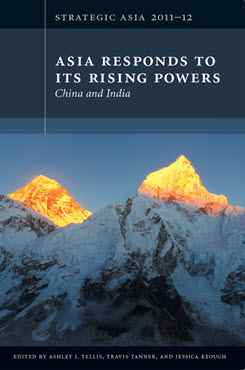International Order and the Rise of Asia
History and Theory
This chapter examines how Asia’s rise relates to classic questions about the integration of rising powers into the international system.
EXECUTIVE SUMMARY
MAIN ARGUMENT
The shift of wealth and power from the North Atlantic to the Asia-Pacific, accompanied by the rise of new powers, is creating a crisis in international governance that will challenge the legitimacy of the U.S.-led order and compel the U.S. to find ways to accommodate this new distribution of power. While liberalism suggests that interdependence, international institutions, nuclear weapons, and new forms of security threats will impel nations to cooperate, realism holds that the new distribution of power will create the kind of tensions that have been historically resolved through war. Asia’s first modern power, early twentieth-century Japan, provides an example of the failure to manage a new rising power. This and other precedents suggest that Europe’s history of interstate conflict could be Asia’s future. While theories based on history are often upended by surprise events, such theories can also sharpen the questions we ask about future changes and how we should prepare for and respond to them.
POLICY IMPLICATIONS
- The key issue is whether the U.S. and other status quo states are willing to concede enough to satisfy rising powers without compromising their own values or appearing weak. If they are not, the rising powers will likely attempt to change the system.
- Asia is in an interregnum, lacking a structure for coping with its diverse peoples and tensions. Though Asian countries are seeking their own norms and will not be satisfied to have them imposed from outside, the number and diversity of actors will complicate creating new rules and institutions.
- All rising states in the modern era have been driven by nationalism, and China will prove no exception. It is unlikely that China will be smoothly integrated into the evolving U.S.-led international order.
Strategic Asia
The Strategic Asia annual edited volume incorporates assessments of economic, political, and military trends and focuses on the strategies that drive policy in the region. Learn more about Strategic Asia.


